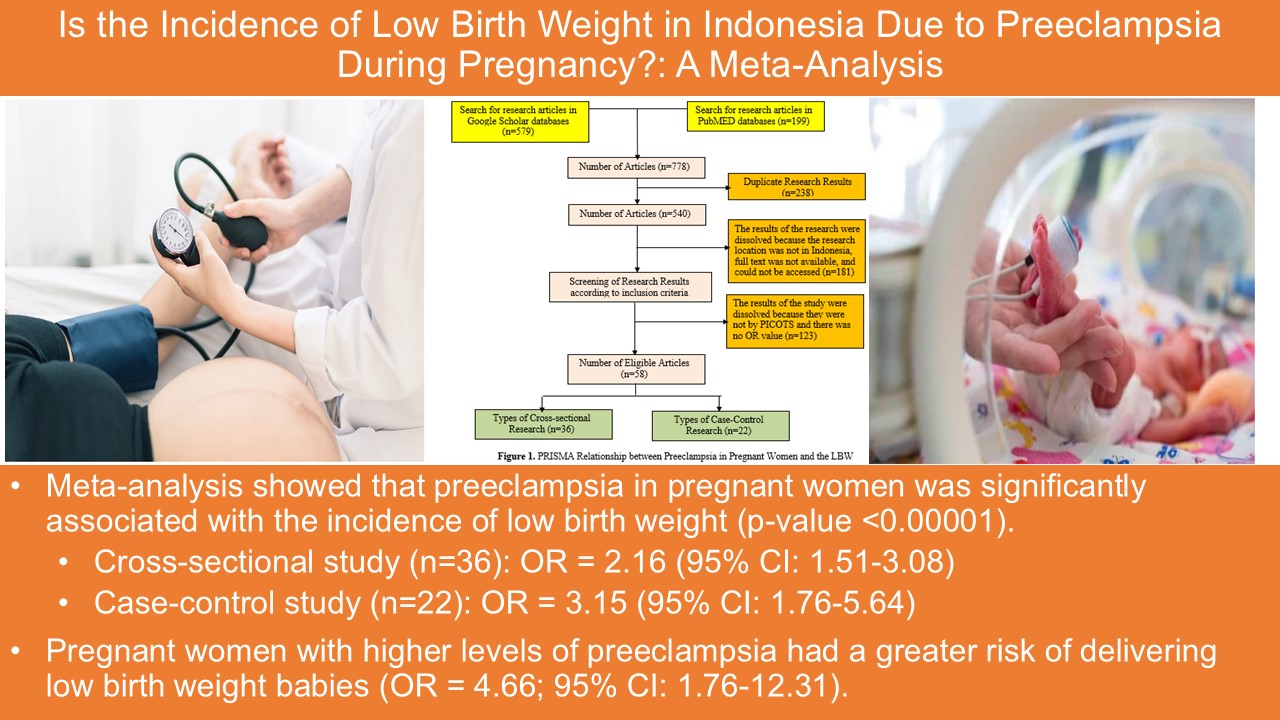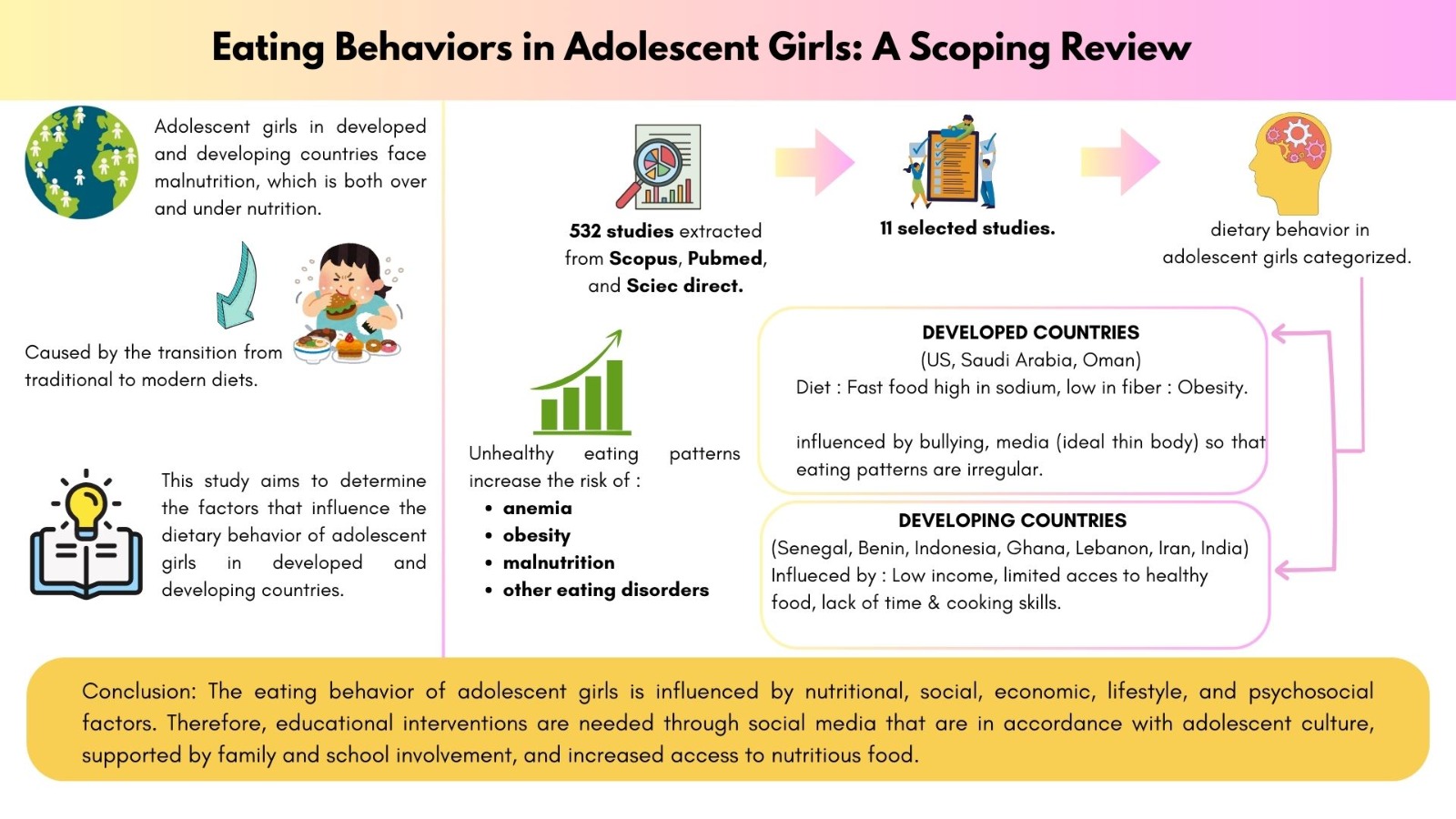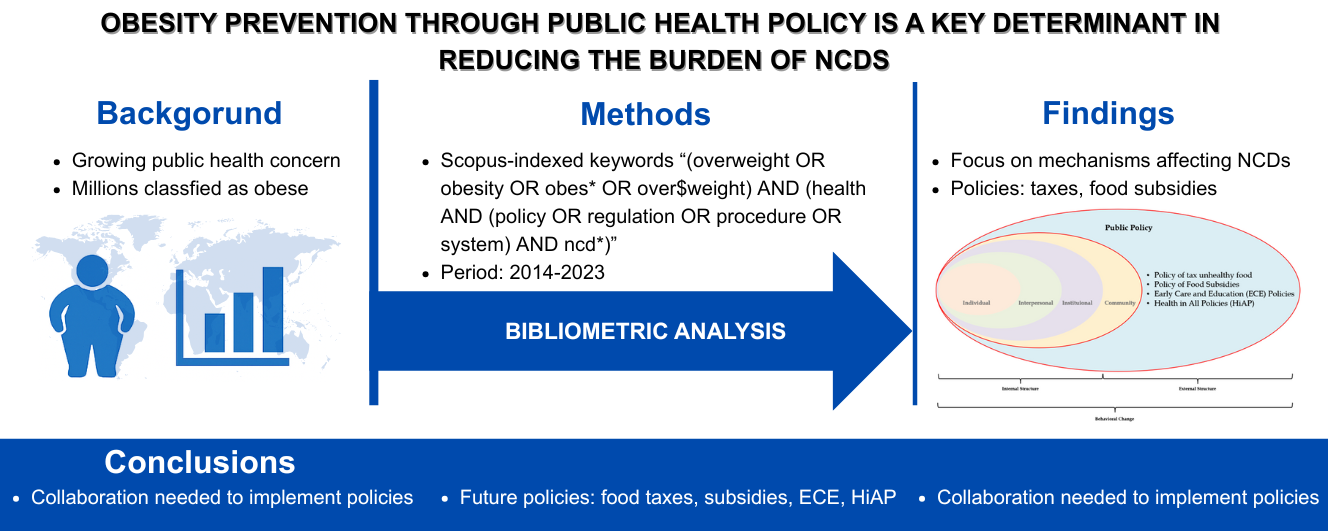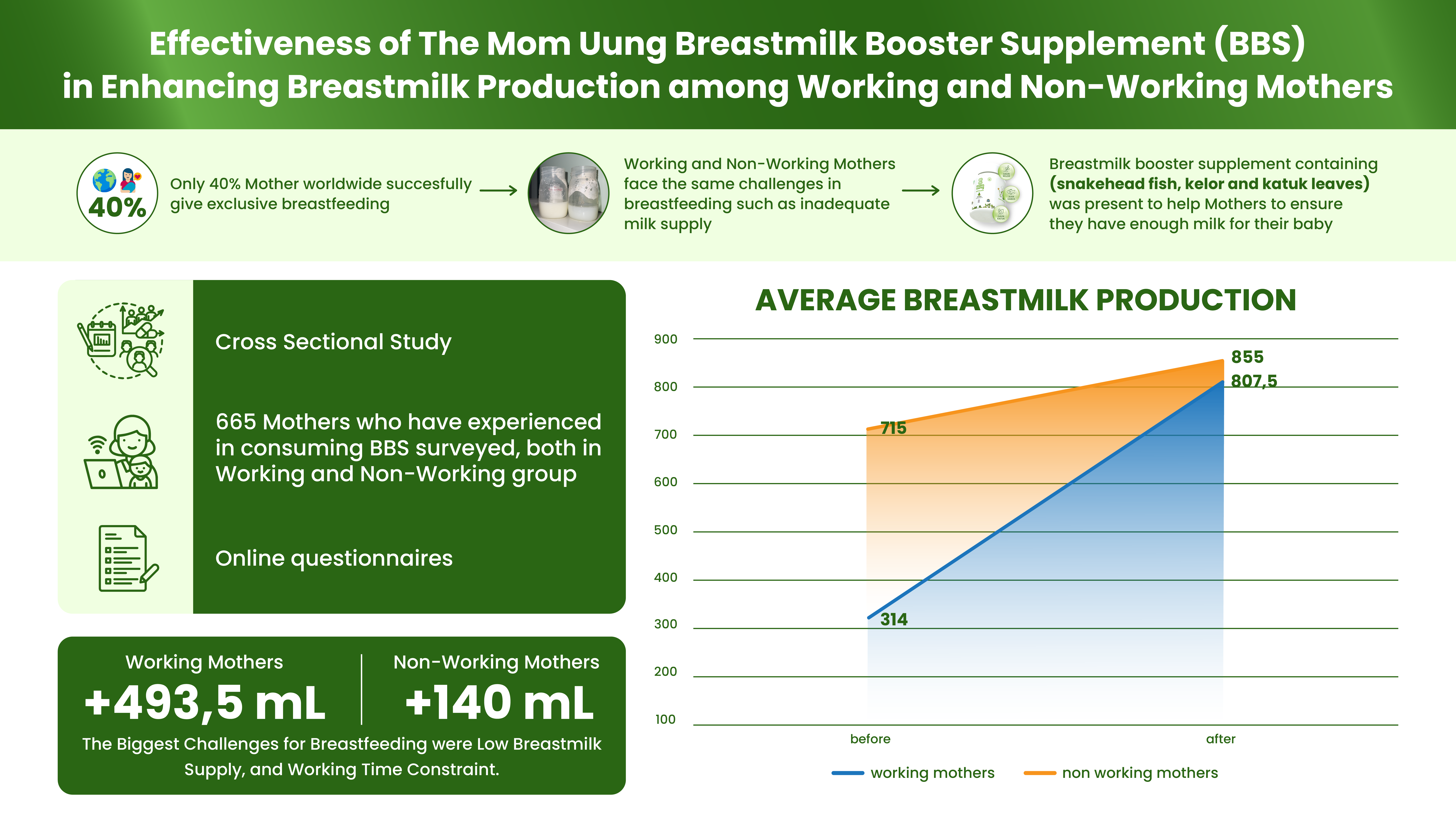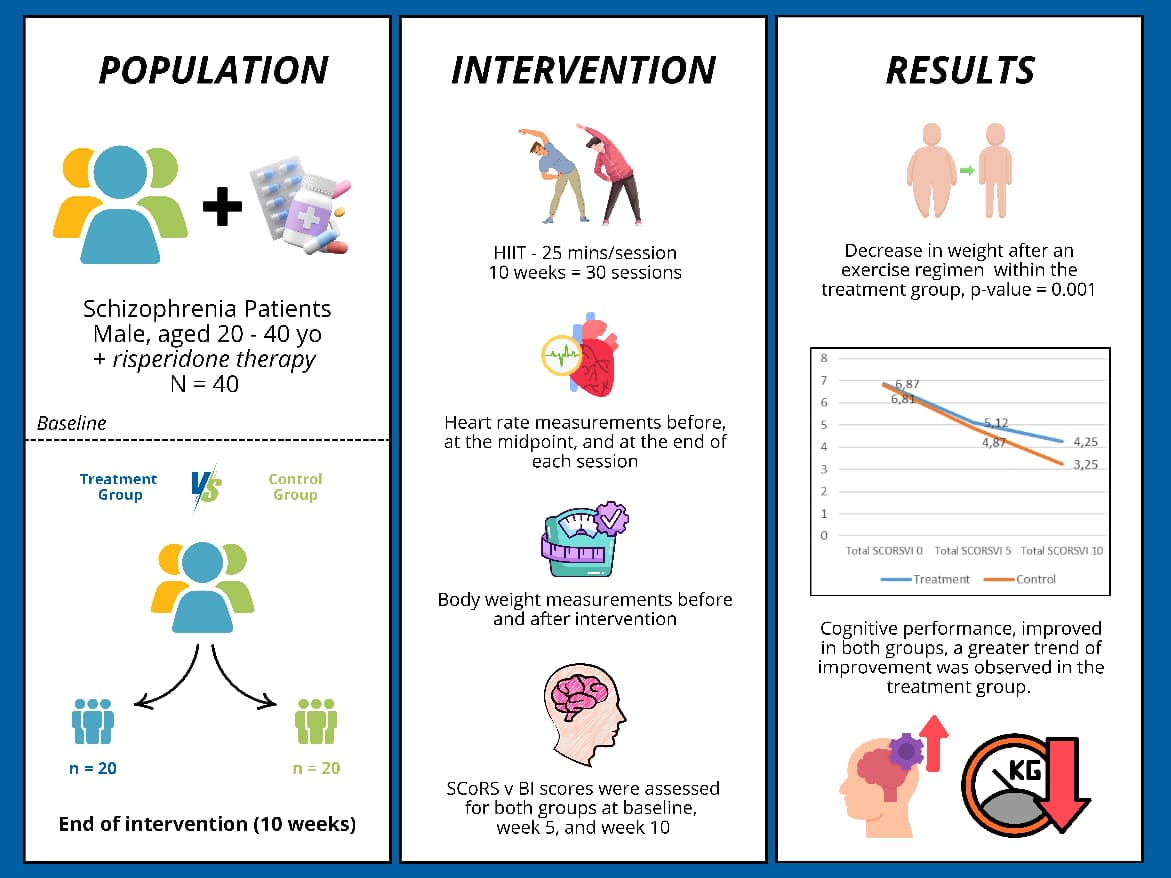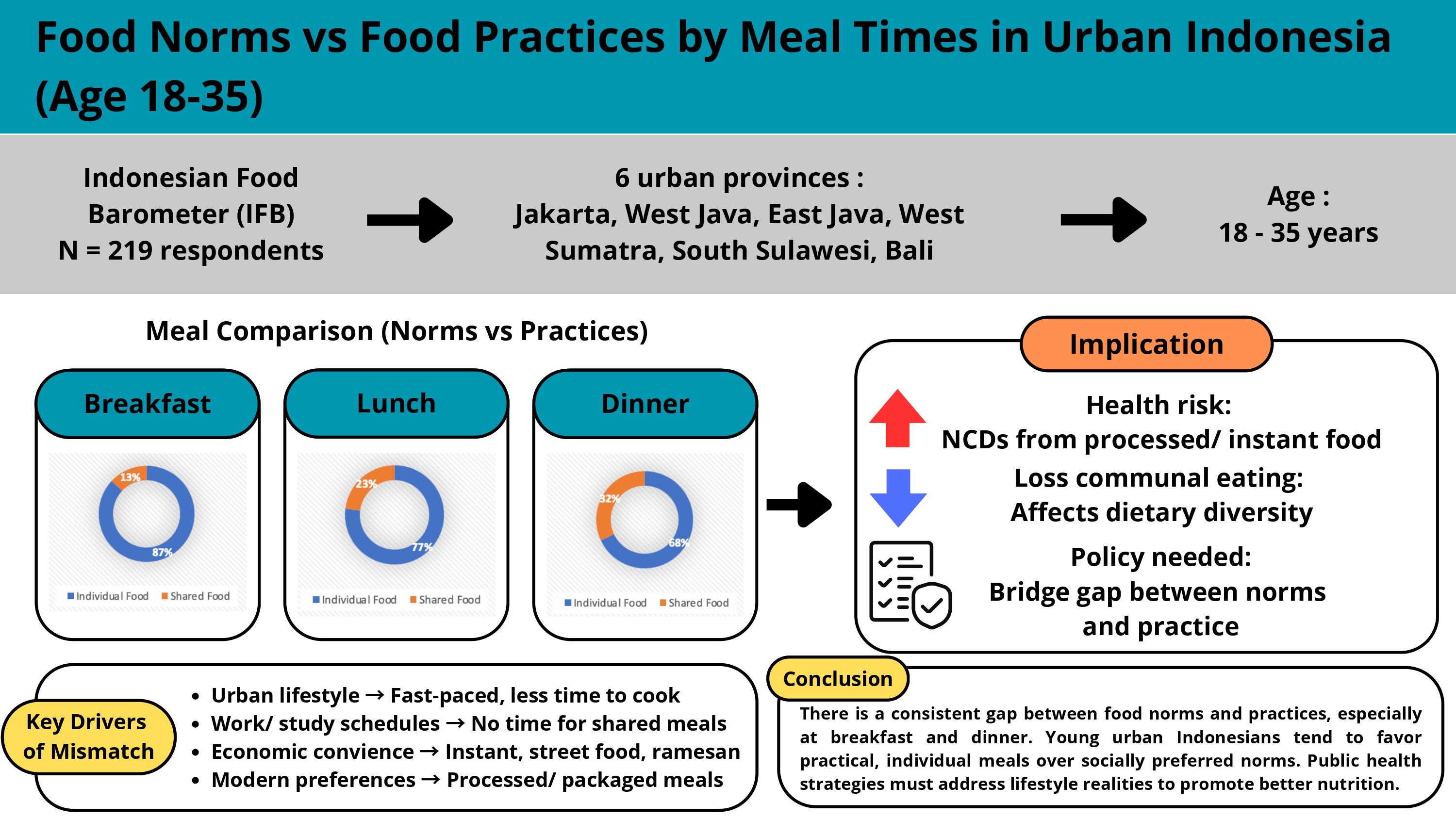DOES EMOTIONAL EATING MEDIATE THE EFFECT OF PHYSICAL ACTIVITY AND SLEEP DURATION ON FAT INTAKE IN PREGNANT WOMEN?
Downloads
Pregnant women need nutrients, one of which is fat. High fat intake might occur due to emotional eating. Emotional eating and excessive fat intake are assumed to be caused by low physical activity and insufficient sleep duration. This study purposed to investigate whether emotional eating mediates the effect of physical activity and sleep duration on fat intake in pregnancy. This study used an analytic survey method with a cross-sectional approach. The population of this study was pregnant women in the second and third trimesters who lived in Bondowoso Regency. Sampling was conducted with a cluster random sampling technique, and 105 subjects were obtained. The research instruments included a 24-hour food recall form, Emotional Eater Questionnaire (EEQ), Pregnancy Physical Activity Questionnaires (PPAQ), and four sleep duration questions from the Pittsburgh Sleep Quality Index (PSQI) form. Statistical test used path analysis. The direct influences in this study were shown by the variables of physical activity and sleep duration on emotional eating (p-values 0.027 and <0.001), and emotional eating on fat intake of pregnant women (p-value <0.001), respectively. Emotional eating can explain the effect of physical activity and sleep duration on fat intake with the indirect effect value greater than that with the direct effect. The conclusion of this study is that there is a role for emotional eating to mediate the indirect effect of physical activity and sleep duration on fat intake. Women who are pregnant should be able to do dietary habit, regulate sleep, and physical activity.
Ahmed, A.E., Albalawi, A.N., Alshehri, A.A., AlBlaihed, R.M., & Alsalamah, M.A. (2017). Stress and its predictors in pregnant women: a study in Saudi Arabia. Psychology Research and Behavior Management, 10, 97–102. doi: 10.2147/prbm.s131474.
Al-Musharaf, S. (2020). Prevalence and predictors of emotional eating among healthy young Saudi Women during the COVID-19 Pandemic. Nutrients, 12(2923), 1–17. doi:10.3390/nu12102923.
Alalwan, T.A., Hilal, S.J., Mahdi, A.M., Ahmed, M.A., & Mandeel, Q.A. (2019). Emotional eating behavior among University of Bahrain students: a cross-sectional study. Arab Journal of Basic and Applied Sciences, 26(1), 424–432. doi: 10.1080/25765299.2019.1655836.
Alrefaai, L., Ellison, G.T., Law, G.R., & Scott, E.M. (2016). P128 Self-reported sleep and eating behaviours amongst pregnant women with gestational diabetes. J Epidemiol Community Health, 70, A110. doi: https://jech.bmj.com/content/70/Suppl_1/A110.1
Antoniou, E.E., Bongers, P., & Jansen, A. (2017). The mediating role of dichotomous thinking and emotional eating in the relationship between depression and BMI. Eating Behaviors, 26, 55–60. doi: 10.1016/j.eatbeh.2017.01.007.
Balieiro, L.C.T., Gontijo, C.A., Fahmy, W.M., Maia, Y.C.P., & Crispim, C.A. (2019). Does sleep influence weight gain during pregnancy? a prospective study. Sleep Science, 12(3), 156–164. doi: 10.5935/1984-0063.20190087.
Blau, L.E., Orloffa, N.C., Flammerb, A., Slatchb, C., & Hormesa, J.M. (2018). Food craving frequency mediates the relationship between emotional eating and excess weight gain in pregnancy. Eating Behaviors, 31, 120–124. doi: 10.1016/j.eatbeh.2018.09.004.
Chandonnet, N., Saey, D., Alme´ras, N., & Marc, I. (2012). French pregnancy physical activity questionnaire compared with an accelerometer cut point to classify physical activity among pregnant obese women. PLoS ONE, 7(6), 1-9. 10.1371/journal.pone.0038818.
Córdova, F.V., Barja, S., & Brockmann, P.E. (2018). Consequences of short sleep duration on the dietary intake in children: A systematic review and metanalysis. Sleep Medicine Reviews, 42, 68–84. doi: 10.1016/j.smrv.2018.05.006.
Darawati, M. (2017). Gizi ibu hamil. Dalam Hardinsyah & I.D.N. Supariasa (Eds.), Ilmu gizi: Teori dan aplikasi (hal. 170-181). Jakarta: Penerbit Buku Kedokteran EGC.
Dashti, H.S., Scheer, F.A.J.L., Jacques, P.F., Lamon-Fava, S., & Ordovás, J.M. (2015). Short sleep duration and dietary intake: epidemiologic evidence, mechanisms, and health implications. Adv Nutr, 6(6), 648–59. doi:10.3945/an.115.008623.
Davenport, M.H., Meyer, S., Meah, V.L., Strynadka, M.C., Khurana, R. (2020). Moms are not OK: COVID-19 and maternal mental health. Frontiers in Global Women's Health, 1(1), 1-6. doi: 10.3389/fgwh.2020.00001
Dorling, J., Broom, D.R., Burns, S.F., Clayton, D.J., Deighton, K., James, L.J., ... Stensel, D.J. (2018). Acute and chronic effects of exercise on appetite, energy intake, and appetite-related hormones: the modulating effect of adiposity, sex, and habitual physical activity. Nutrients, 10(1140), 1–21 doi: 10.3390/nu10091140.
Eichler, J., Schmidt, R., Hiemisch, A., Kiess, W., & Hilbert, A. (2019). Gestational weight gain, physical activity, sleep problems, substance use, and food intake as proximal risk factors of stress and depressive symptoms during pregnancy. BMC Pregnancy and Childbirth, 19(1), 1–14. doi: 10.1186/s12884-019-2328-1.
Eren, N.Åž., Åžencan, Ä°., Aksoy, H., Koç, E.M., Kasım, Ä°., Kahveci, R., ... Özkara, A. (2015). Evaluation of dietary habits during pregnancy. Turk Jinekoloji ve Obstetrik Dernegi Dergisi, 12(2), 89–95. doi: 10.4274/tjod.79923.
Favre, G., Pomar, L., Qi, X.L., Nielsen-Saines, K., Musso, D., & Baud, D. (2020). Guidelines for pregnant women with suspected SARS-CoV-2 infection. Lancet Infect Dis., 20, 652–653. doi: 10.1016/S1473-3099(20)30157-2.
Gibson, R.S. (2005). Principles of nutritional assesment. Inggris: Oxfords University Press.
Gong, Q.H., Li, H., Zhang, X.H., Zhang, T., Cui, J., & Xu, G.Z. (2017). Associations between sleep duration and physical activity and dietary behaviors in Chinese adolescents: results from the Youth Behavioral Risk Factor Surveys of 2015. Sleep Medicine, 37, 168–173. doi: http://dx.doi.org/10.1016/j.sleep.2017.06.024.
Hill, C., Lipsky, L.M., Betts, G.M., Siega-Riz, A.M., & Nansel, T.R. (2020). A prospective study of the relationship of sleep quality and duration with gestational weight gain and fat gain. Journal of Women's Health, 00(00), 1–7. doi: 10.1089/jwh.2020.8306.
Hirko, K.A., Comstock, S.S., Strakovsky, R.S., & Kerver, J.M. (2020). Diet during pregnancy and gestational weight gain in a Michigan pregnancy cohort. Current Developments in Nutrition, 4(8), 1–10. doi: 10.1093/cdn/nzaa121.
Kalmbach, D.A., Cheng, P., Sangha, R., O'Brien, L.M., Swanson, L.M., Palagini, L., ... Drake, C.L. (2019). Insomnia, short sleep, and snoring in mid-to-late pregnancy: disparities related to poverty, race, and obesity. Nature and Science of Sleep, 11, 301–315. doi: http://doi.org/10.2147/NSS.S226291.
Kemenkes RI. (2018). Laporan nasional riset kesehatan dasar tahun 2018. Jakarta: Badan Penelitian dan Pengembangan Kesehatan.
Kemenkes RI. (2019). Peraturan Menteri Kesehatan Republik Indonesia nomor 28 tahun 2019 tentang angka kecukupan gizi yang dianjurkan untuk masyarakat Indonesia. Jakarta: Kementerian Kesehatan Republik Indonesia.
Kleiser, C., Wawro, N., Stelmach-Mardas, M., Boeing, H., Gedrich, K., Himmerich, H., & Linseisen, J. (2017). Are sleep duration, midpoint of sleep and sleep quality associated with dietary intake among Bavarian adults?. Nature Publishing Group, 71(5), 1–7. doi: 10.1038/ejcn.2016.264.
López-Galán, B., & de-Magistris, T. (2019). Testing emotional eating style in relation to willingness to pay for nutritional claims. Nutrients, 11(1773), 1–16. doi:10.3390/nu11081773.
Mutiek, K.D., Fanani, M., & Nuhriawangsa, A.M.P. (2021). Relationship between stress level, physical activity, and consumption pattern of magnesium with emotional eating in overweight adolescents. Atlantis Press: Advances in Health Sciences Research, 34, 50–53. doi: https://doi.org/10/2991/ahsr.k.210127.012.
Quezada, A.D., Macías-Waldman, N., Salmerón, J., Swigart, T., & Gallegos-Carrillo, K. (2017). Physical activity and calorie intake mediate the relationship from depression to body fat mass among female Mexican health workers. International Journal of Behavioral Nutrition and Physical Activity, 14(160), 1–13. doi: 10.1186/s12966-017-0612-x.
Riawati, N. (2018). Strategi pengembangan produk unggulan daerah melalui kebijakan Pemerintah Daerah Kabupaten Bondowoso. Jurnal Natapraja, 6(2), 163–178. doi: https://doi.org/10.21831/jnp.v6i2.24225.
Richards, A.L., & Specker, B.L. (2020). Exploring relationships of eating and physical activity behaviors with sleep behaviors among adult weight loss participants. Topic in Clinical Nutrition, 35(1), 50–61. doi: 10.1097/TIN.0000000000000 198.
Roser, M., & Ritchie, H. (2013). Food supply. Accessed from: https://ourworldindata.org/food-supply.
Smith, K.E., O'Connor, S.M., Mason, T.B., Wang, S., Dzubur, E., Crosby, R.D., ... Roemmich, J.N. (2020). Associations between objective physical activity and emotional eating among adiposity-discordant siblings using ecological momentary assessment and accelerometers. Pediatric Obesity, e12720, 1–9. doi: 10.1111/ijpo.12720.
WesoÅ‚owska, E., Jankowska, A., Trafalska, E., KaÅ‚uzny, P., Grzesiak, M., Dominowska, J., ... Polanska, K. (2019). Sociodemographic, lifestyle, environmental and pregnancy-related determinants of dietary patterns during pregnancy. International Journal of Environmental Research and Public Health. 16(5), 1–15. doi: 10.3390/ijerph 16050754.
Whitaker, K.M., Hung, P., Alberg, A.J., Hair, N.L., & Liu, J. (2021). Variations in health behaviors among pregnant women during the COVID-19 pandemic. Midwifery, 95, 1-8. doi: https://doi.org/10.1016/j.midw.2021.102929
WHO. 2014. Global strategy on diet, physical activity and health. Accessed from: http://www.who.int/dietphysicalactivity/strategy/eb11344/strategy_english_web.pdf.
Xiang, M., Zhang, J., Liang, H., Zhang, Z., Konishi, M., Hu, H., ... Sakamoto, S. (2019). Physical activity and dietary intake among Chinese pregnant women: an observational study. BMC Pregnancy and Childbirth, 19(1), 1–8. doi: 10.1186/s12884-019-2452-y.
Zhang, J., Zhang, Y., Huo, S., Ma, Y., Ke, Y., Wang, P., & Zha, A. (2020). Emotional eating in pregnant women during the COVID-19 pandemic and its association with dietary intake and gestational weight gain. Nutrients, 12(8), 1–12. doi: 10.3390/nu12082250.
Copyright (c) 2022 Media Gizi Indonesia

This work is licensed under a Creative Commons Attribution-NonCommercial-ShareAlike 4.0 International License.
- MEDIA GIZI INDONESIA Journal is the copyright owner of all materials published on this website.
- The formal legal provisions for access to digital articles of this electronic journal are subject to the terms of the Creative Commons Attribution-NonCommercial-ShareAlike license (CC BY-NC-SA 4.0), which means that MEDIA GIZI INDONESIA Journal and readers reserve the right to save, transmit media / format, manage in database, maintain, and publish articles as long as it continues to include the name of the Author.
- Printed and published print and electronic manuscripts are open access for educational, research and library purposes. In addition to these objectives, the editorial board shall not be liable for violations of copyright law.


2.png)















